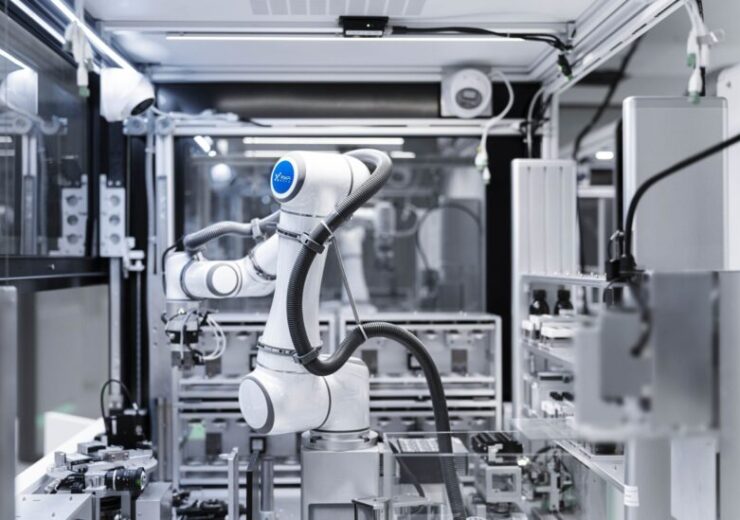The drug discovery partnership will make use of XtalPi’s integrated AI capabilities and robotics platform to design and deliver novel drug candidates for an undisclosed target, which will be pursued by Lilly in clinical and commercial development

XtalPi combines AI "dry lab" and robotics "wet lab" to form an iterative feedback loop for its drug discovery service. (Credit: PRNewswire/XtalPi Inc.)
XtalPi, an artificial intelligence (AI) and automation-powered pharmaceutical technology company, has forged an AI drug discovery collaboration with Eli Lilly and Company (Lilly) worth up to $250m.
The amount to be paid to XtalPi includes upfront and milestone payments.
According to the company, the partnership will make use of its integrated AI capabilities and robotics platform to design and deliver novel drug candidates for an undisclosed target.
With operations in China as well as in the US, the company synergises mutually informative AI “dry lab” algorithms with large-scale “wet lab” robotics to drive innovation in pharmaceuticals.
XtalPi said that it will closely work with Lilly’s team to leverage its AI drug discovery solution for creating a novel compound, which will be pursued by the latter in clinical and commercial development.
XtalPi CEO Jian Ma said: “With a closed loop of AI and quantum physics algorithms working in sync with the data factory of large-scale robotics experiments, XtalPi is uniquely equipped to tackle challenging novel targets.
“We are honoured that Lilly has chosen XtalPi’s AI + robotics drug R&D platform as a partner in achieving more fruitful pharmaceutical innovation and bringing much-needed treatments to patients worldwide.”
The company’s small-molecule drug discovery platform ID4Inno combines AI, autonomous labs, and domain expertise to produce and investigate a target-specific mega chemical space and narrow down the most potential lead series.
XtalPi said that by using its internal biochemical, cellular, pharmacodynamic, and pharmacokinetic assay capabilities, each set of synthesised molecules is tested. The project-specific research and data (R&D) emerging from that is fed into generative AI models in iterative design-make-test-analyse cycles until a candidate with optimal drug properties is found.
The pharma technology company is also said to have a fleet of hundreds of autonomous robotic workstations to perform accurate and energy-efficient parallel chemical synthesis and assays around the clock. XtalPi revealed plans to bring its autonomous lab to Cambridge, Massachusetts.
The partnership with Lilly follows the announcement made by XtalPi of entering into a collaboration with Merck to optimise drug formulations with the help of AI.
